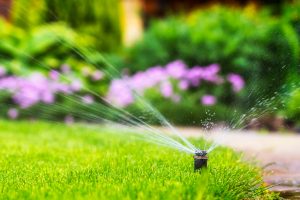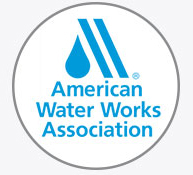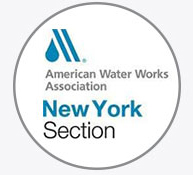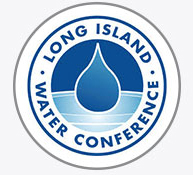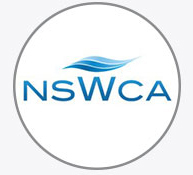Conservation
The aquifers of Long Island have enough water for present water demands. However, saving water will ensure that our future generations will always have a safe and abundant supply.
The West Hempstead Water District continues to implement a comprehensive water conservation program in order to minimize any unnecessary water use. The New York State Department of Environmental Conservation (DEC) recently announced a mandate calling for a 15 percent reduction in water usage over the next several years. The District applauds the initiative. Starting with scheduled infrastructure inspections, our program also includes evaluations and proactive maintenance of our 125 miles of water mains, our three storage tanks and the District’s 579 fire hydrants. We also hired a leak detection firm that uses specialized sound equipment that “listens” underground to our mains, service connections and hydrants to determine if there are any hidden leaks occurring anywhere within the District’s boundaries.
What Can You Do To Save Water?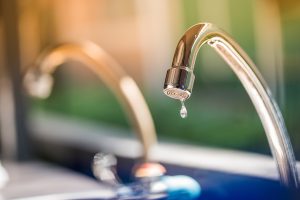
Residents of the District can also implement their own water conservation measures such as retrofitting plumbing fixtures with flow restrictors, modifying automatic lawn sprinklers to include rain sensors, repairing leaks in the home, installing conservation fixtures/appliances and maintaining a daily awareness of their personal habits that can minimize usage.
Eight Easy Steps To Conserve Water At Home
Did you know that less than one percent of the treated water delivered by utilities is used for drinking? The rest goes on lawns, in washing machines, in dishwashers, is used for showering, cooking and flushing of toilets. In the summer, usage skyrockets and can quadruple during significant hot spells.
Here are eight ways the residents of the District can help conserve our most precious resource:
- Leaks are wasteful and costly. Check spigot, hose and sprinkler system connections regularly for leaks. Also check toilets for tank leaks.
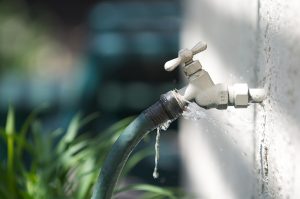
- Groundcover plants require less water. Daylilies, monarda, lavender, clematis, zinnias and marigolds will star in your garden.
- Keep your lawn approximately two to three inches long. This reduces evaporation and requires less water.
- Composting boosts water retention…and gives plantings some extra nutrients.
- Instead of hosing your driveway, patio, or sidewalk, sweep and you’ll save water.
- Leave lawn clippings on the lawn to increase water retention.
- A slow-drip irrigation system avoids over-watering and saves money on your water bill.
- Water Wisely: The use of an EPA WaterSense labeled automatic irrigation controller can potentially save thousands of gallons per season. So consider upgrading your irrigation system controller. Not only will you be conserving our vital drinking water resource, you will also lower your water bill!
How To Check If Your Toilet Is Leaking
If your water bill is a bit higher than usual and you haven’t changed your usage habits, it may mean you have a leak somewhere in your house. An often-overlooked place for water leaks is the toilet.
Follow these simple steps to check if you have a leak in your toilet:
- Remove the toilet tank lid.
- Drop one dye tablet or 10 drops of food coloring into the tank. If needed, packets of dye tablets are available for pick up at the District.
- Put the lid back on. Do not flush.
- Wait at least 10 to 15 minutes and then look in the toilet bowl.
- If you see colored water in the bowl, you have a toilet leak.
- The leak can sometimes be because the toilet flap is broken.
- If you need further assistance, call a licensed plumber.
Lawn Watering Ordinance
Nassau County has year-round outdoor water restrictions that apply to automatic, time-controlled sprinklers and manually operated hoses:
- No watering between 10:00 a.m. and 4:00 p.m.
- Even house numbers* water on even dates.
- Odd house numbers* water on odd dates.
- Premises without numbered addresses may water on even dates.
- No watering on the 31st of any month.
*numbers correspond to the last digit in your street address
The Tuna Can Test
Most lawns need only one to two inches of water each week to stay green! Over-watering often leads to fungus and lawn disease. The Tuna Can Test is a good measure of proper watering.
- Place several empty tuna cans around your lawn at various distances.
- Turn on your sprinkler system.
- Time how long it takes to fill up a tuna can.
- Once the can is full, that’s how long you should water your lawn twice per week.
Attention Pool Owners!
Do you have a swimming pool? Make sure you have a pool cover because evaporation can make thousands of gallons of water vanish into thin air! An average size pool with average sun/wind exposure loses up to 1,000 gallons of water per month. A pool cover can cut the evaporation loss by 90%.
Tap Versus Bottled: Think Before You Drink!
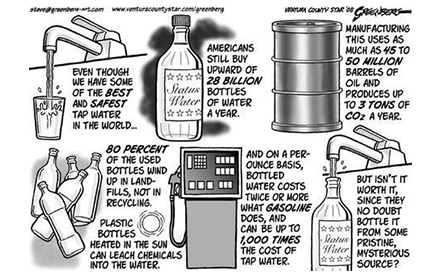 Is bottled water really better? The facts will surprise you!
Is bottled water really better? The facts will surprise you!
Unlike bottled waters, you always know where your water comes from and how it is treated. It comes from right beneath your feet from the Magothy Aquifer under Long Island and is tested more rigorously and more often than bottled water.
- Plastic bottles require between 450 and 1,000 years to decompose! That means all the bottles and caps discarded in our waste stream today are likely to still be around…somewhere, for a very long time.
- Everyone talks recycling…but few practice it. On average, only 20 percent of all plastic bottles are actually recycled.
- Bottled water is expensive! On Long Island, a bottle of water can cost from 250 times to 1,000 times more than tap water.
- It requires three times the amount of water to produce a plastic bottle than it takes to fill it.
You don’t have to go to the store to have the highest quality tap water. It’s delivered right to your homes, businesses and schools every day.


